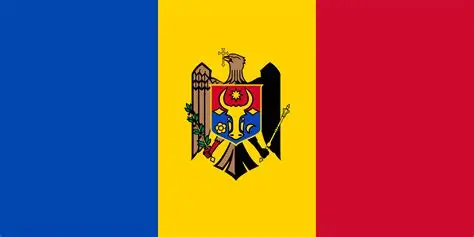mMoldovans went to the polls on Sunday in a parliamentary election that could determine whether the country of 2.4 million continues its path towards European Union membership or drifts back into Moscow’s sphere of influence. The vote comes against a backdrop of mounting allegations of Russian interference and deep political polarisation.
President Maia Sandu and her pro‑European Action and Solidarity Party (PAS) face a formidable challenge from an alliance of pro‑Russian parties, many of which retain strong support in rural areas and regions with historic ties to Moscow. The bloc is led in part by former president Igor Dodon, whom Sandu defeated in the 2020 presidential race.
Polling stations across the country, which lies between Ukraine and Romania, opened at 7am local time and will close at 9pm, with results expected late on Sunday. Opinion surveys suggest PAS is likely to remain the largest party in parliament but may lose its outright majority, potentially curbing Sandu’s ability to push through reforms required for EU accession.
The outcome is being closely monitored in Brussels and other European capitals, where concerns are high that Russia could secure a foothold in a strategically sensitive region. Western officials have warned that Moscow is intensifying its hybrid warfare tactics across the continent, with Moldova now seen as a key target.
Casting her ballot in the capital, Chișinău, Sandu underlined the stakes. “Moldova, our dear home, is in danger, and it needs the help of each one of you. You can save it today with your vote. Tomorrow may be too late,” she said. “The fate of our country must be decided by your vote, not by bought votes.”
Since declaring independence from the Soviet Union in 1991, Moldova has oscillated between closer ties with Brussels and a reliance on Moscow. Sandu, a former World Bank official, was elected president in 2020 on a wave of anti‑corruption sentiment and has since made EU integration the cornerstone of her administration. Last October, her government held a referendum in which Moldovans narrowly voted to enshrine EU membership as a constitutional objective. On the same day, Sandu secured re‑election for a further four‑year term.
Under Moldova’s political system, power is shared between the directly elected president and a prime minister appointed by parliament. The composition of the new legislature will therefore be crucial in determining whether Sandu can continue her pro‑European agenda.
This year’s campaign has been overshadowed by persistent allegations of Russian meddling. Moldovan authorities accuse Moscow of funnelling billions of dollars into pro‑Russian parties, orchestrating vote‑buying schemes and spreading propaganda designed to stoke anti‑Western sentiment. A Reuters investigation last week revealed that dozens of priests in the deeply religious country had been recruited and paid to urge congregations to vote against PAS.
Two pro‑Russian parties were barred from the election on Friday over alleged financing irregularities, a move that provoked anger among the opposition and sharp criticism from Moscow. The Kremlin has denied interfering in Moldova’s affairs, but it continues to shelter fugitive oligarch Ilan Shor, who is under US and EU sanctions and is widely believed to be directing destabilisation efforts from abroad.
Western diplomats have warned that the stakes extend far beyond Moldova’s borders. “It’s a small country, but the consequences are disproportionately big for Europe,” one diplomat said. “If Moldova turns back to Russia, it will be a massive headache for European security.” A western intelligence official added that Moscow had made Moldova its “key foreign policy priority after Ukraine”, noting that the Kremlin had recently reshuffled the team handling Moldovan affairs to pursue a more aggressive strategy.
Despite her international backing, Sandu faces significant domestic challenges. Inflation remains high, emigration continues to sap the workforce, and economic growth has been sluggish. Her supporters argue these problems are largely the result of external shocks, particularly Russia’s war in Ukraine, which disrupted trade routes, triggered an energy crisis and forced Moldova to accommodate tens of thousands of refugees.
Sandu’s electoral hopes rest heavily on the Moldovan diaspora, which has traditionally supported PAS, as well as younger, urban voters. Yet her party remains far less popular in regions with strong pro‑Russian leanings. In Transnistria, where Moscow still stations around 1,500 troops following a brief separatist conflict in the 1990s, and in the semi‑autonomous region of Gagauzia, pro‑Russian sentiment runs deep.
As the polls close, the result will not only shape Moldova’s domestic trajectory but also carry significant implications for the balance of power in Eastern Europe. For Brussels, the vote represents a test of whether the EU can maintain momentum in its eastern neighbourhood. For Moscow, it is an opportunity to reassert influence in a country long regarded as part of its historic orbit.



